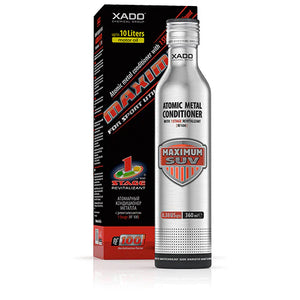Unwanted sounds in the engine
Probable reasons \ Recommendations
- Knocks and unwanted sounds occur due to wear of mating engines. Clicks and knocks in the upper part of the engine are connected to the valve drive operation and indicate increased clearances in the valve drives, probable wear of camshaft cams, as well as increased valve stem clearances.
- replacement of defective parts and/or adjustment of the valve train
- Frequent clatter sounds are typical by malfunctioning hydraulic lifters due to contamination of oil channels, unpressurized back-pressure valve and/or wear (increased clearance in the plunger pair). Unwanted sounds stop when a functioning engine is warmed up, but malfunctioning hydraulic lifters continue to emit knocking sounds. That is why the assembly needs to be thoroughly washed first. It will help determine the reason for knocking sounds: if contamination is the reason, knocks will stop after cleaning of oil channels and the valve seat. If the hydraulic lifters are worn, knocks can sometimes be eliminated by increasing the oil viscosity or changing it for a thicker one. A more viscous oil will seal the clearances. By critical wear of hydraulic lifters they should be changed.
- Washing of oil channels in hydraulic lifters: Vita Flush - oil system cleaner, which is added into the motor oil (200 to 1,000 km of run).
- Increase of oil viscosity: Atomex Complex oil treatment - anti-smoke oil treatment with Revitalizant®.
- Use of oil with increased high temperature viscosity. For instance, replacement of oil SAE 5W-40 with oil SAE 5W-50.
Note
Experience shows that application of Verylube Metal conditioner TURBO for engine allows significantly reducing the knocks in hydraulic lifters. - Metallic “clutter” at certain operation modes of gasoline engines, for instance, by increased loads are related to the appearance of detonation, which can be caused by
- inappropriate operation of the engine control system (early/late ignition, malfunctioning signal for opening of the injector or ignition coil plug etc.),
- adjustment and elimination of malfunctions in the engine control system, replacement of defective elements.
- low-quality fuel for gasoline engines
Elimination of the results of using low-quality fuel, enhancement of fuel properties can be achieved by introducing one of the following compounds into the fuel:
- AtomEx F8 Complex Formula (Gasoline) Product for protection of the engine from results of using low-quality fuel
- Verylube Petrol Euro+ – additive for enhancement of fuel quality
- underfill of fuel occurs due to malfunction or contamination of injectors
Injectors can be cleaned by introducing one of the following compounds into the fuel:
- MaxiFlush Fuel system cleaner (for gasoline engine) – complex highly effective product for professional cleaning of the fuel system of gasoline engines
- Atomex MultiCleaner (Gasoline)– highly effective fuel system cleaner
- VERYLUBE Injector and carburetor cleaner (for gasoline engines)
- inappropriate operation of the engine control system (early/late ignition, malfunctioning signal for opening of the injector or ignition coil plug etc.),
- Knocks caused by preignition (mixture ignition because of hot engine elements due to increased carbon deposits on valves, pistons and surfaces of combustion chambers)
In order to remove significant carbon deposits, it is recommended to use VERYLUBE Anticarbon – anti-carbon engine cleaner. Quick-action products for decarbonizing stuck piston rings of gasoline and diesel engines are introduced directly into the engine cylinder. After decarbonizing the engine it is necessary to change the oil.
- Unwanted sounds (low flat knocks, metallic, ringing, repetitive noise), occurring in the middle and lower part of the engine simultaneously with crankshaft revolutions indicate wear of main/rod bearings, decrease of oil pressure. If there are knocks in main and rod bearings, engine operation is impossible. If the pressure in the lubrication system decreased and the above noises just occurred, one can try to increase the pressure of the oil by increasing its viscosity or replacing it with a thicker one. This is just a temporary measure to get the car under its own power to a parking lot or to a service station (not more than 100 km). Thicker oil will seal the clearances and increase the pressure.
- Increase of oil viscosity: Atomex Complex oil Treatment.
- Use of oil with increased high temperature viscosity. For instance, replacement of oil SAE 5W-40 with oil SAE 5W-50.




